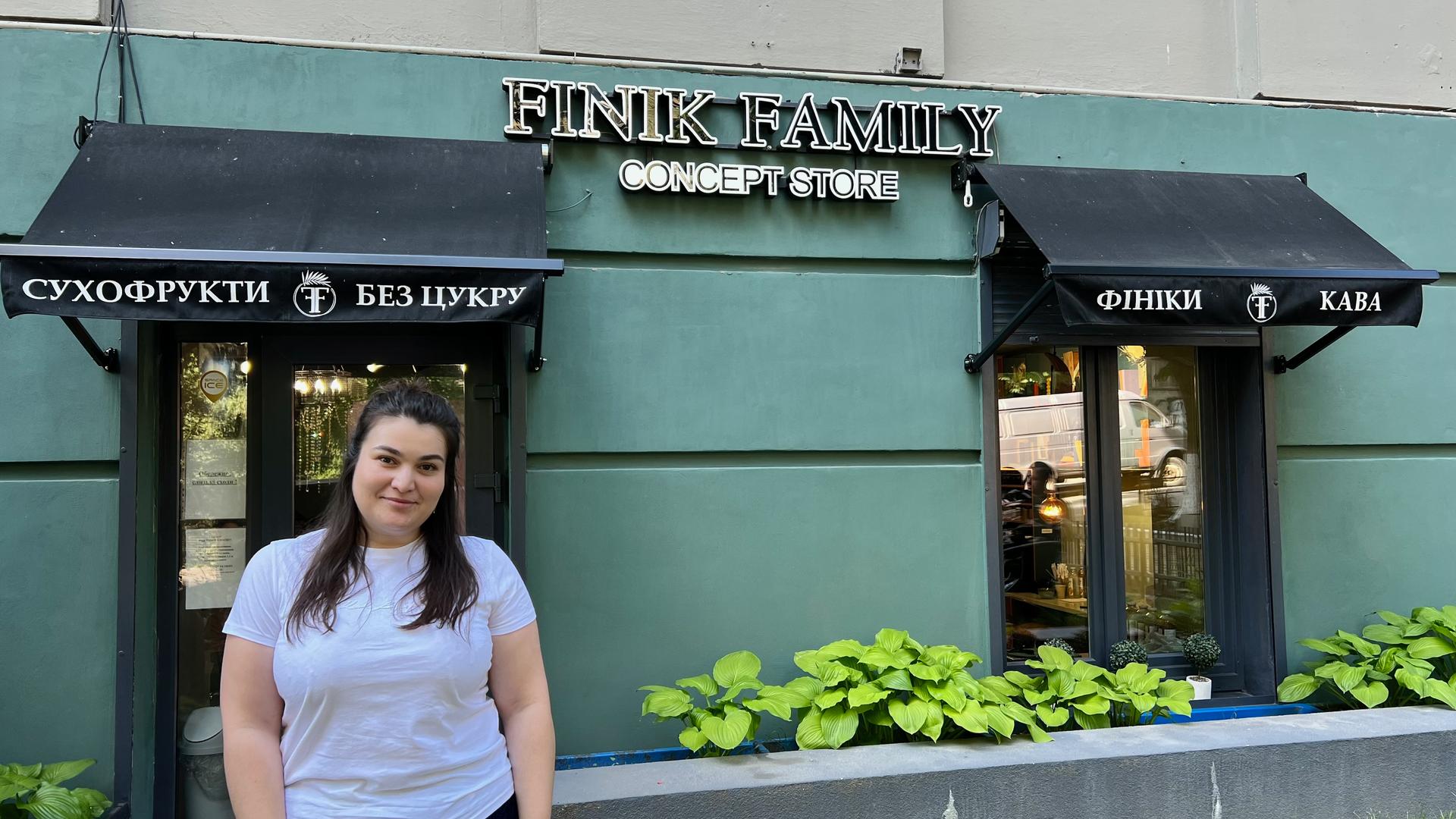Illona Kocharyan and her husband shuttered their boutique dry goods store in Kyiv, Ukraine, when the war broke out.
Her family waited out the war in Austria for two months before returning home in mid-May and reopening the store on May 30.
“We wanted to come home and open the shop and continue our work,” she said. “It’s difficult, yes, but we have to work and we will work every day.”
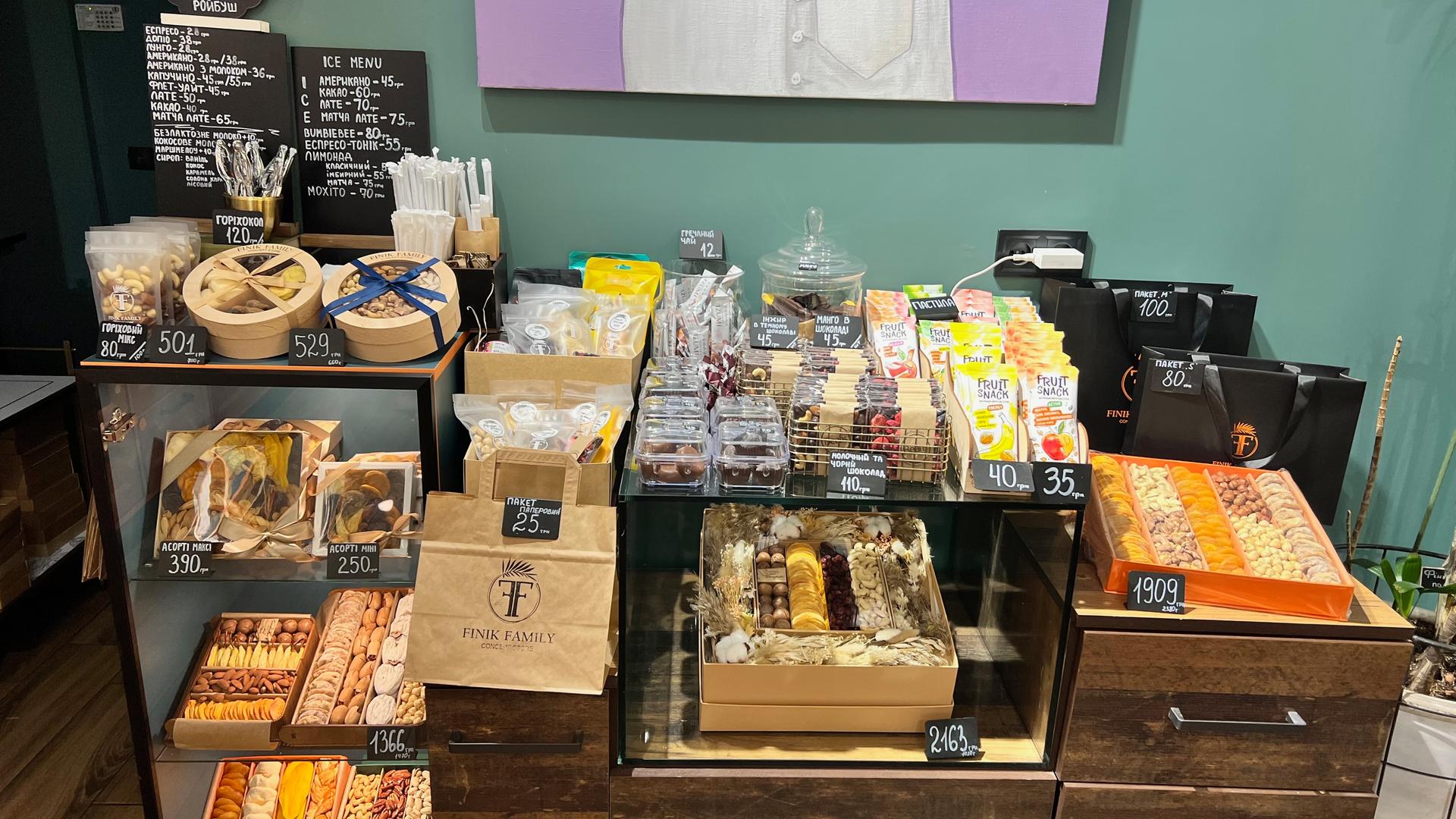
Nearly half of the country’s small businesses closed when the war began. Now, many Ukrainians like Kocharyan are returning home, and reopening their businesses. But with the future unclear, they face some serious challenges.
Some 4.5 million Ukrainians displaced by the war have returned home, according to the International Organization on Migration.
“Some of them have exhausted all of their resources,” IOM communications officer Varvara Zhluktenko said. “Also, if the security situation is much better, it also facilitates return.”
However, over 60% of returnees are without income since the war began and more than a third of the returnees say that they feel unsafe, according to IOM.
This uncertainty is acutely felt by the small business community, which depends on stability and spending customers, said Oksana Myronko, a spokeswoman for the European Business Association, a Kyiv-based nonprofit organization.
“The best thing that could happen for small businesses in Ukraine is for the war to end,” Myronko said.
Small businesses under threat
Ukraine’s once-vibrant small business environment has been decimated by the war. In March, 42% of the country’s small businesses had closed, according to the European Business Association.
By May, about a quarter were able to reopen, but the instability makes it hard to predict their long-term success.
“It’s really hard to predict something when you don’t understand what will be next in the country, and where the rocket will be next,” Myronko said.
And with no end to the war in sight, the financial sustainability of many of these businesses is deteriorating.
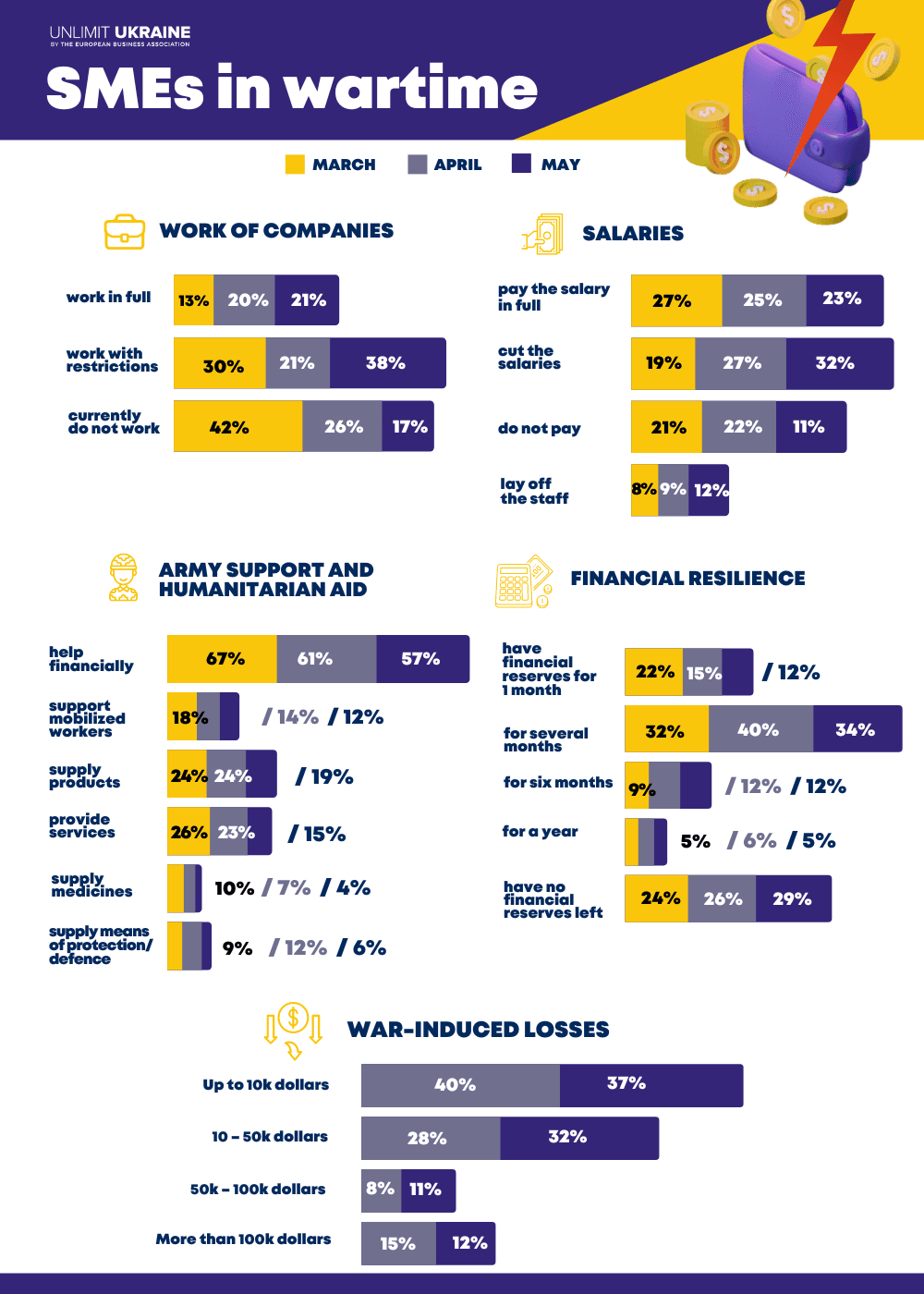
According to EBA findings, only about 34% of all small businesses have reported that their financial resources will be enough for several months, Myronkos said. Financial confidence was 7% higher before the war began.
Few businesses have enough money to stay open for at least a year.
‘We’re just breaking even’
Finik Family is located on a leafy street near the city center in Kyiv. The inside is lined wall-to-wall with neatly designed packages of pears, figs, peaches and their signature stuffed dates. They also sell coffee and other beverages.
The store’s goods hail from Ukraine, Armenia, the Middle East and even from as far as Hawaii, Kocharyan said.
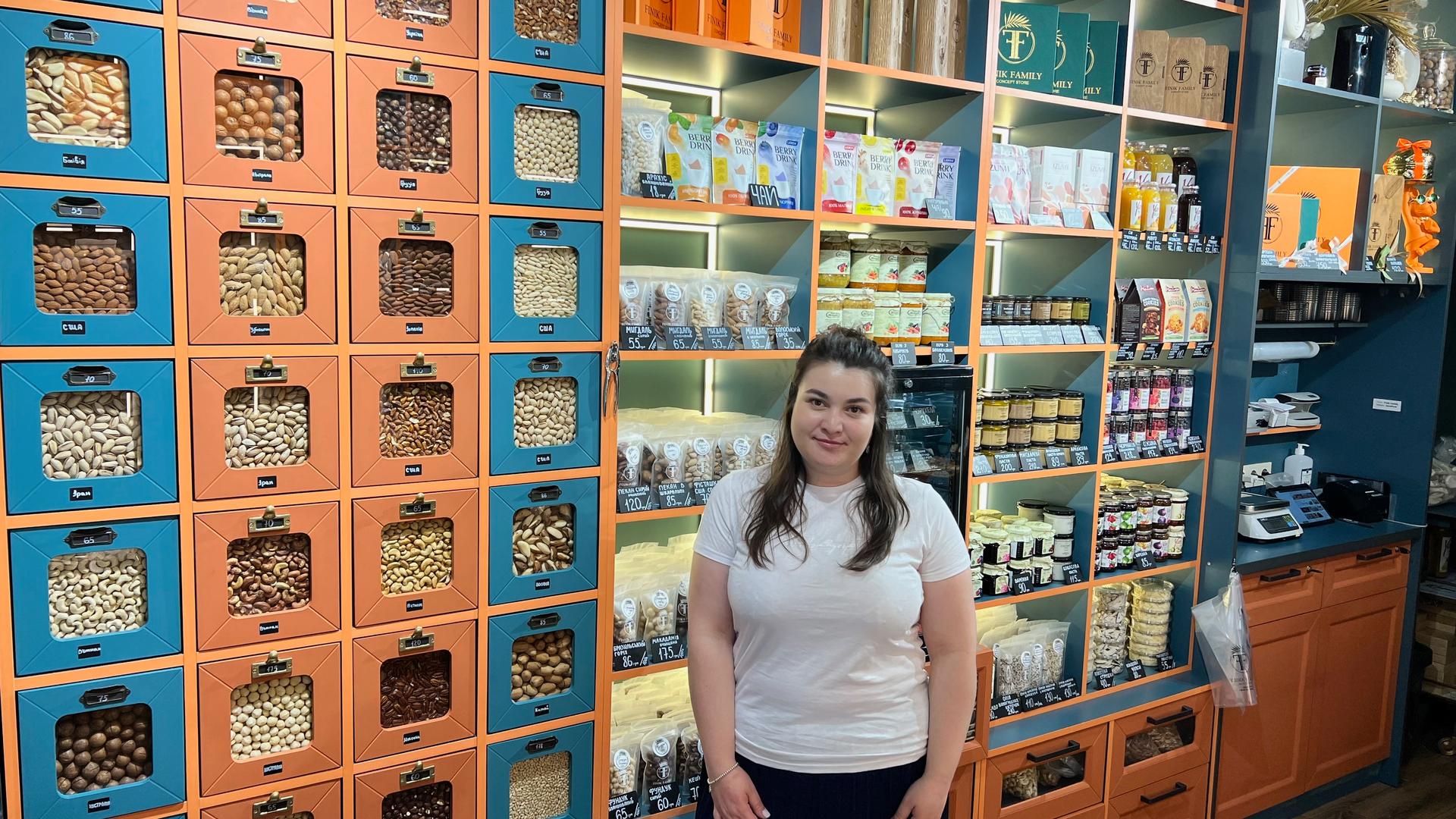
Business these days isn’t bad, but it isn’t good, either, Kocharyan said.
“We’re just breaking even,” she said, noting that they’re making five times less in in-store sales than before the war, and 10 times less in online orders.
It’s enough to sustain for now, but not enough to expand, she said.
There have also been supply issues, she said, particularly with vendors in the eastern part of Ukraine, closer to the front lines. And in some cases, she said, they’ve had to lower prices.
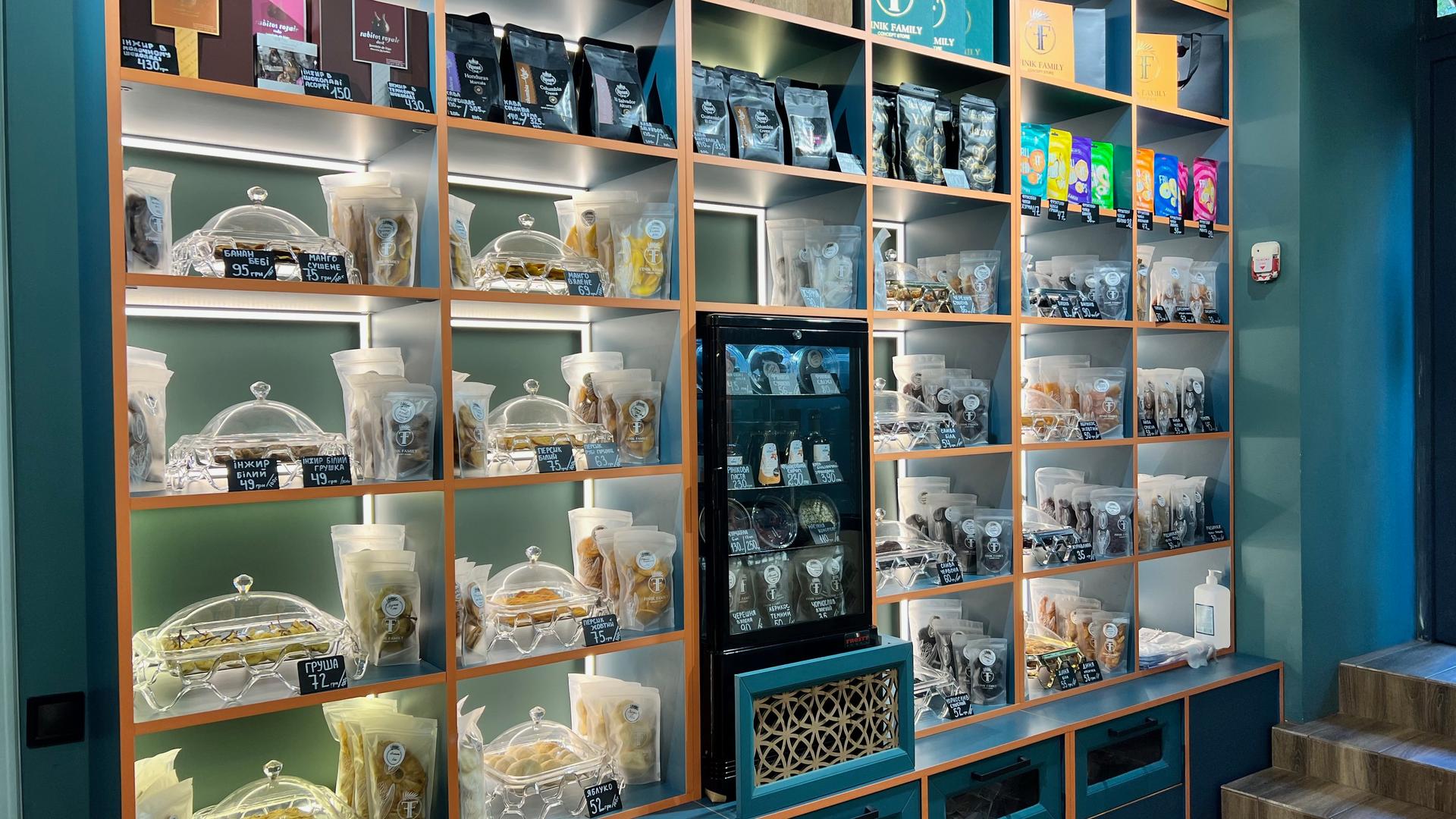
But Kocharyan said that they’re committed to keeping the place going, and she doesn’t want to leave Kyiv again.
“I think that all will be good; all will be good. But not in one year or two years — it will be good in several years. Ukraine is a good country,” she said.
The World is an independent newsroom. We’re not funded by billionaires; instead, we rely on readers and listeners like you. As a listener, you’re a crucial part of our team and our global community. Your support is vital to running our nonprofit newsroom, and we can’t do this work without you. Will you support The World with a gift today? Donations made between now and Dec. 31 will be matched 1:1. Thanks for investing in our work!
